Brock and others have asked that I post a how to on my fanned frets, so here it is in all it's glorious simpleness

First things first....
* The wood I'm using here is some of Brad Goodmans snakewood, I don't know where he gets it from but it's the best I've ever seen, period. Had we not been forced to move I would have bought every single piece he had

* I like to bind my fingerboards and especially with expensive snakewood, I want to keep all that glorious figure so part of my process is to do that, it makes the process more intricate by quite a bit. However if you skip that step cutting a fanned fret is pretty easy.
* The jig I'm using is inspired by Harry Fleishman, I'm actually designing a newer version of this jig using better materials, while this one works it's too easy to screw something up with it. The new version will use a laser and aluminum for stabiliy...
Ok now down to business, the first thing you need to detemine is your two scales, mine are 27" and 24.75", I printed out a chart of 64's for each scale and use a starret with 64's and a sharp exacto to make my markings. It's very important to remember that a fanned fret's scale 'slides' based on the the width of the fingerboard, so you need to *know* your width before you start, and mark at the outer edges of the fingerboard.
I lay out my fingerboard pattern on each side, marking one as the top and one as the back, since I'm going to cut the frets on the top I'll mark the back with the fret positions. To mark each position I tape my ruler along the drawn edge and use my exacto to make a small mark at each postion, it's important to remember that you are doing this upside down so be sure to double check you have the right scale on the right side. After the positions are marked I use a sharp pencil and lay out my marks, they look like this:
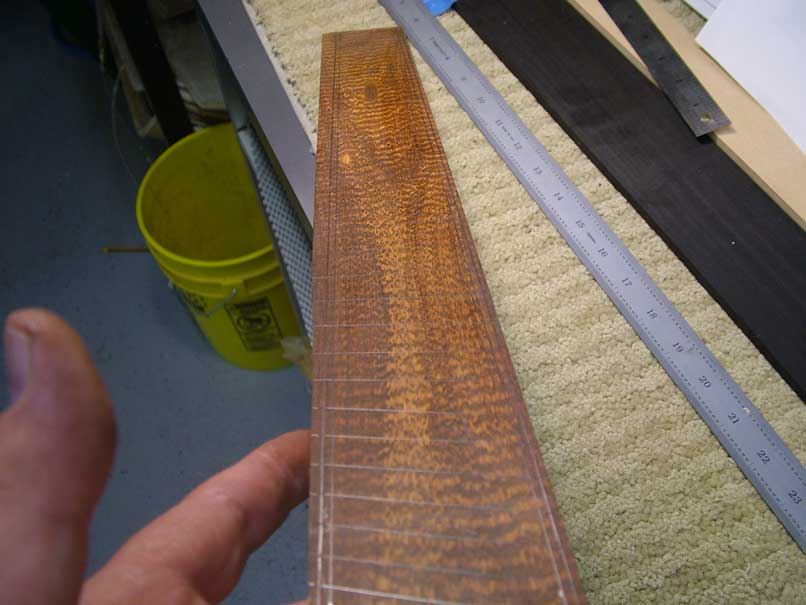
Now I double check everything, I actually had one of these off and had to remark it, it's easy to do this now and it's easy to see if they are right, trust your eyes here, if one looks out then check it to be double sure, you get one chance to cut this so nows the time to be nervous.
Here is my blank ready for cutting:
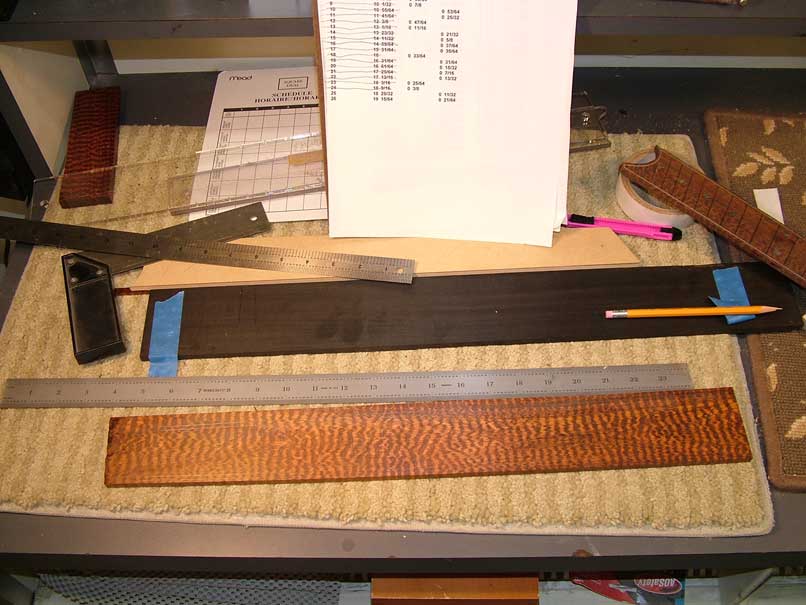
Now I'm going to take off about 1/8" of the edge of the fingerboard so I can glue it back on when I've cut the frets, to do this I have a little sled that the fingerboard rides on allowing me to cut it precisely, also note for this cut I use the fret saw because I want to remove as LITTLE as possible to try and keep the figure in one piece, here is the fingerboard in the sled:
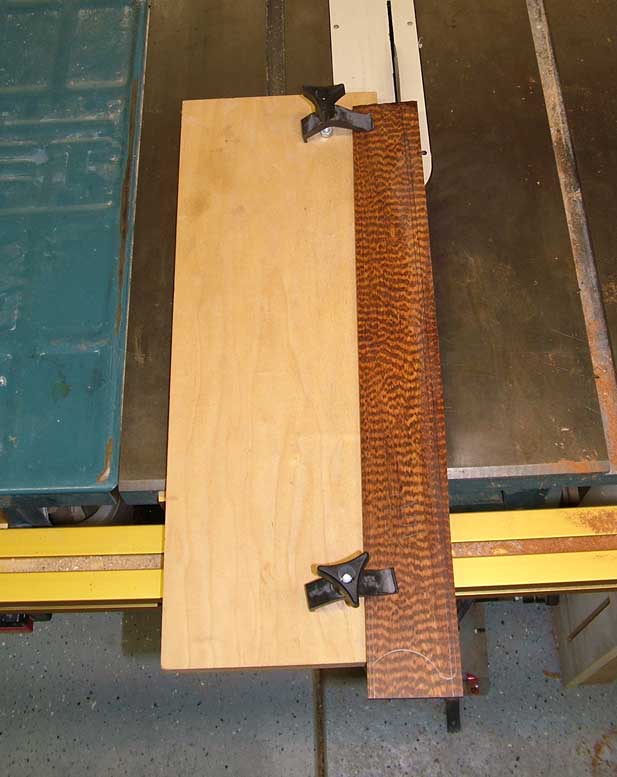
I cut off each side based on my markings and end up with a fingerboard like this:
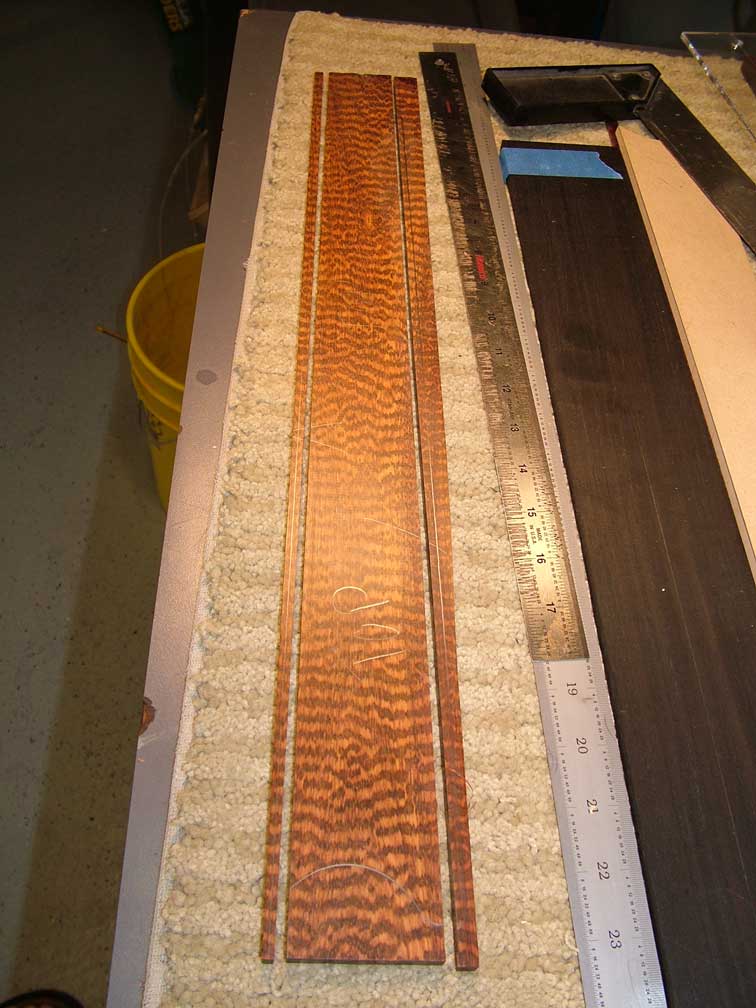
Now we can cut the slots, for this I have a special jig as mentioned before, I set my slot depth and layout the first cut:
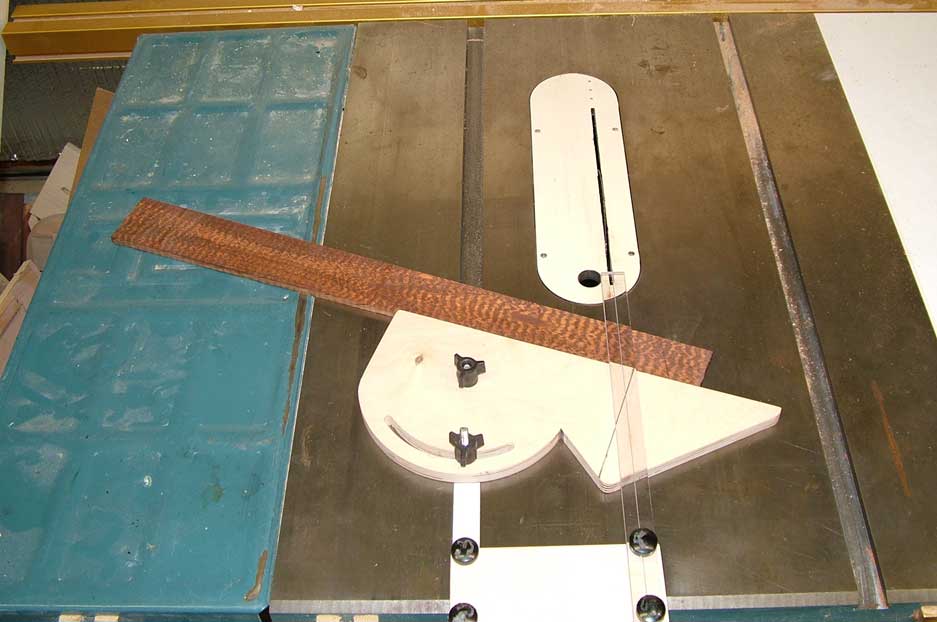
A couple of VERY CRITICAL notes here:
1. Make sure you have a light source directly overhead so you don't get parallax when cutting.
2.When I line up my cuts I actually take the mark on the fingerboard back and the one on the jig and align them by eye with the fingerboard mark off to the side, then I move it under the line. This assures that I am aligned (trust your eyes), and I repeat this exact step for each fret.
When done this is what I end up with:
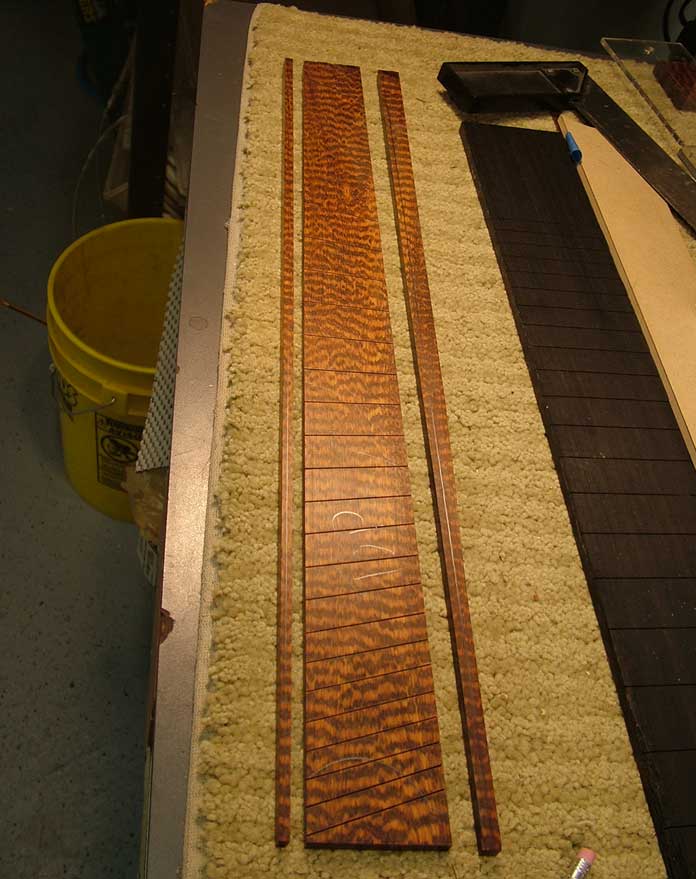
Now I need to glue those edges back on, I have a workboard bolted to my workbench for this and it looks like then when all clamped up:
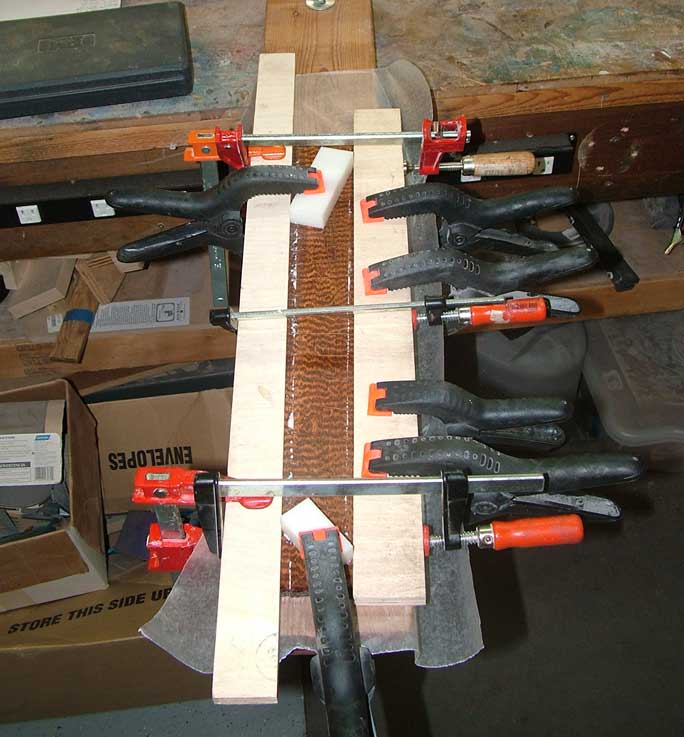
From here I let it dry, scrape it clean and then cut the fingerboard down to it's final width. Please keep in mind that ANY blade will remove some of the material so you need to make sure you have extra to compensate for this or your fingerboard wiill come out skinny (don't ask how I know

I'll be inlaying violin purfling into this one with Paua fingerboard dots, I use the SM violin purfling cutter to do that after I have the fingerboard all cut and ready.
Let me know if you have any questions.
Cheers
-Paul-
 Between moving and getting ready for Healdsburg, I'm surprised you found the time. I'm not planning on trying this anytime soon but the pics will come in handy if I ever do try a fanned fret guitar. Be sure and get Lance to post this in the jigs section. Thanks again.
Between moving and getting ready for Healdsburg, I'm surprised you found the time. I'm not planning on trying this anytime soon but the pics will come in handy if I ever do try a fanned fret guitar. Be sure and get Lance to post this in the jigs section. Thanks again.
